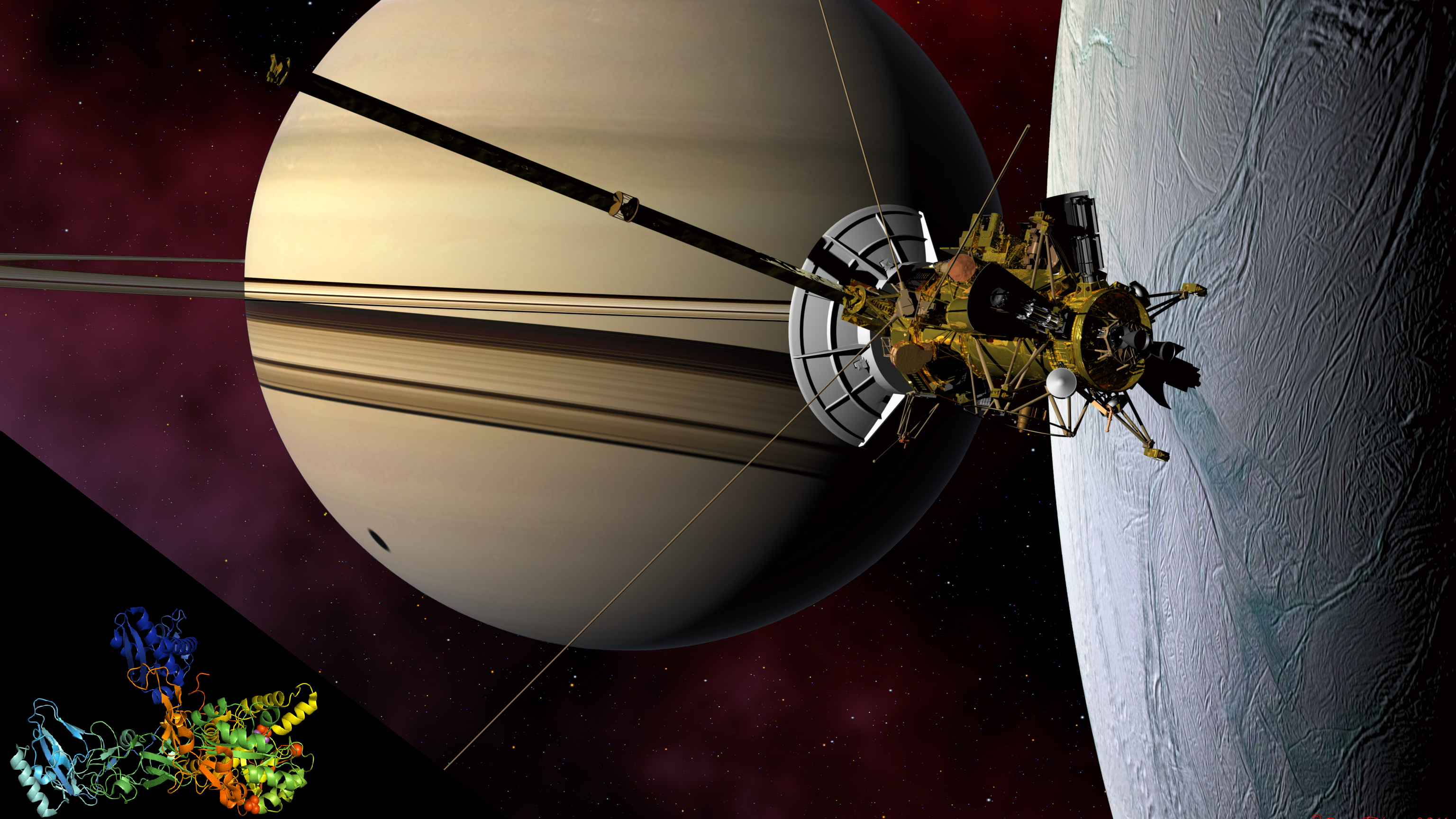Duration: 36 months
Proteins are the cornerstone of all life found on Earth, with their structural and functional diversity and ease in modification and turnover, making them ideal for biological processes (1). Their capabilities and the abiotic availability of chemical precursors make it logical to postulate that proteins may form a universal construct of life (2). However, there has been limited research into how proteins could operate in solvent conditions found on other bodies in our Solar System. Understanding how proteins could function in these environments will help address whether other bodies in our solar system could host protein-based life (3)(4). We propose to investigate the solvent-protein compatibility of two Solar System locations, Enceladus and Mars. Using data from the Cassini probe and the upcoming Mars2020 and ExoMars rovers, this proposal aims to replicate these bodies' solvent conditions to create a solvent modelling system. For Enceladus, we aim to replicate the subterranean ocean that was sampled by the Cassini probe utilising the Ion and Neutral Mass Spectrometer and Cosmic Dust Analyser (5)(6)(7)(8). For the Mars model, we will replicate the solvent environment of the potential ocean that existed in the northern hemisphere within which the Rosalind Franklin and Perseverance rover will land (9). By introducing proteins to these two modelling systems, this research will assess if protein-based life is compatible with the current conditions on Enceladus and the early conditions on Mars. This research will mature our current understanding of the biochemical limits of protein functionality while also pushing the boundary of our understanding as to what areas of the solar system could be compatible with life. An approach applying the astrochemical data acquired from Enceladus or Mars to protein biochemical studies has never been previously attempted, thus demonstrating the novelty this study will bring to the astrobiological and bioscientific fields

